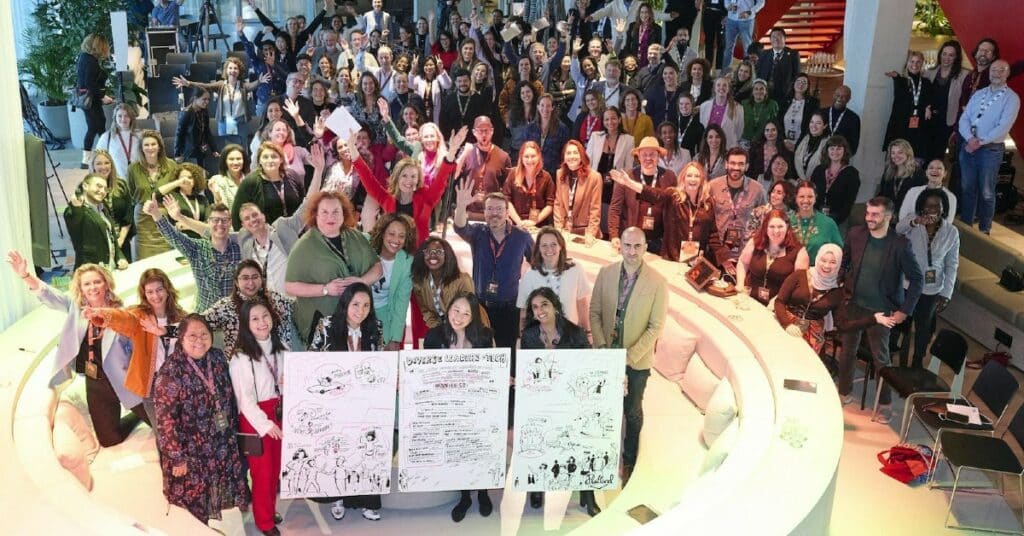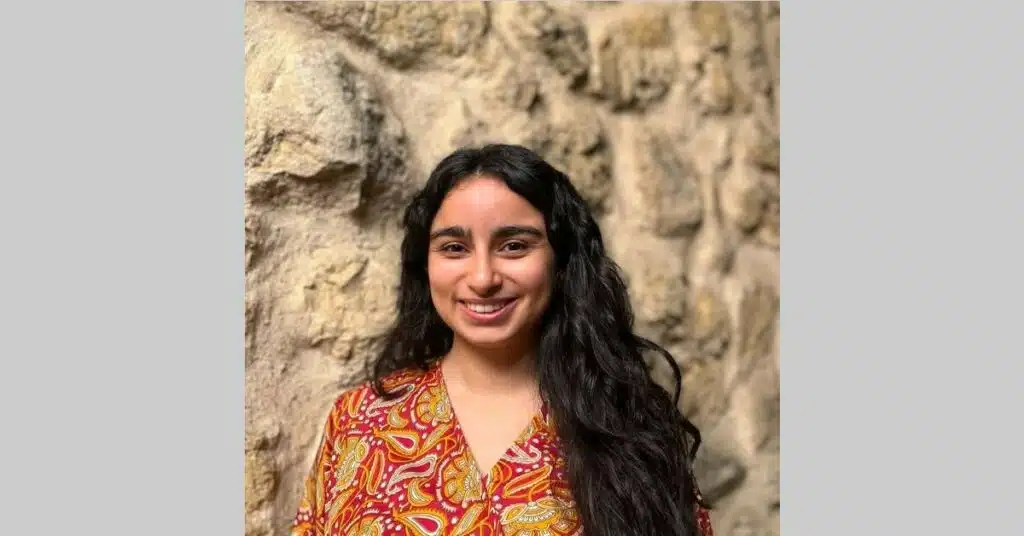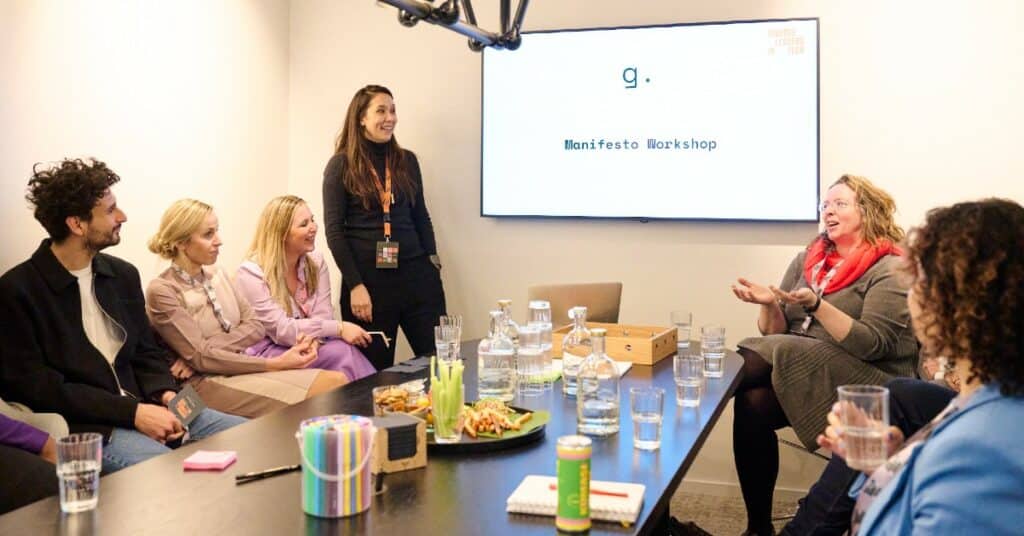At the TNW Conference in June, the Dutch D&I in Digital Benchmark 2023 showed how the Netherlands trails Europe in its diversity and inclusion efforts.
The benchmark showed the percentage of women in technical positions in the Dutch digital sector declined from 21 per cent in 2022 to 19 per cent in 2023.
With the Netherlands scoring three percent below the European average and almost half of Dutch tech companies having taken no concrete steps to advance their D&I initiatives, the D&I benchmark was a wake up call for the digital sector in the Netherlands.
“The falling representation of women in the Dutch tech sector is indeed concerning,” says Samaa Mohammad, community member of Diverse Leaders in Tech (DLiT) and founder of Dutch AI Ethics Community.
Diverse Leaders in Tech (DLiT) community is an initiative by Techleap.nl, a Dutch non-profit organisation focused on the growth of scale-ups in the Netherlands.
With the expertise of more than 150 tech leaders like Mohammad, Techleap.nl aims to bring true diversity to the Dutch tech sector by 2030.
Need for a holistic D&I approach

In order to reverse the decline in representation of women in the Dutch tech sector, Mohammad argues the sector needs to adopt a holistic approach.
“This could involve steps such as setting up mentorship and sponsorship programmes to encourage and support women in the field, implementing recruitment practices to mitigate unconscious bias, and providing flexible working conditions that can help to accommodate diverse lifestyles and needs,” she says.
We often view diversity through the lens of employers and the efforts made by them to increase representation.
Mohammad, however, argues that to achieve true diversity, the Dutch tech ecosystem should start way earlier.
She speaks passionately about the university experience of her friends, where only 1 per cent of entire students in class were women or people of colour.
While her AI study had 40 per cent female representation, since it included humanities and computer science courses, the traditional tech-oriented classes remained male dominated.
This lack of diversity between peers in the classroom is a clear stumbling block for a society aiming to achieve diversity.
“It’s not uncommon for a woman to be one of the few in a tech class or team and eventually drop out due to a non-inclusive environment,” she says based on her own experience.
She argues in favour of creating an educational ecosystem where women and women of colour are welcomed with open arms.
As a diversity leader, Mohammad also feels there is a need for mentorship and sponsorship programmes to “encourage and support women in the field.”
She defines holistic approach as one where recruitment practices are implemented to mitigate unconscious bias and provide flexible working conditions to accommodate diverse lifestyles and needs.
“It’s important to create an inclusive culture where everyone feels valued and heard,” she says, adding, “it’s essential to celebrate and highlight the achievements of diverse women in tech to provide role models for future generations.”
Data-first approach

The Dutch D&I in Digital Benchmark 2023 also showed how Dutch tech companies are only tracking traditional metrics such as age, nationality, and gender to portray their diversity efforts.
However, there is now a strong argument in favour of tracking data beyond these traditional metrics.
Mohammad, who is also a board member of NGO Algorithm Audit & Digital Ethics Specialist at Alliander, argues in favour of tracking additional data as a way for companies to better understand and address bias.
But she cautions companies to make sure that such data is collected in a responsible and ethical way.
“Any data collected should be anonymized to protect individuals’ privacy, and it should be used solely for the purpose of improving diversity and inclusion,” she remarks.
She further notes that companies should be transparent about what data is being collected and why to give individuals the opportunity to opt out if they wish.
One of the areas where the Netherlands seems to have fallen behind is moving from good intentions to greater impact with data-driven DEI.
By collecting additional data, the Netherlands could finally catch up to its European peers and accelerate its diversity goals.
One of the ways that can be done is by investing in data analysis capabilities to derive meaningful insights from this data, and they must be willing to act on these insights to drive real change.
AI to promote D&I

As an AI ethicist, Mohammad sees AI playing a huge role in promoting diversity and inclusion.
She explains how AI can be used to “analyse hiring, promotion, and compensation practices to identify patterns of bias or discrimination.”
In addition, she also sees AI playing a role in mitigating bias from the decision making process by ensuring that the decisions are based on objective criteria and does not take into account any personal bias or stereotype.
This might come as a surprise to some since there are proven instances of AI-facilitated hiring hurting people of colour, women, and people with disabilities.
Mohammad, who wrote a thesis on Social Bias in Automated Decision-Making Algorithms, sees a clear way forward to avoid these pitfalls.
For starters, she encourages all companies to view mitigating AI bias from the perspective of technical, company culture, and governance.
On the technical front, she recommends mitigating bias through the development process by selecting variables in the training data that can make a big impact on bias.
“Another way to mitigate bias is to use diverse training data that represents a wide range of perspectives and experiences,” she explains.
She also strongly recommends use of techniques such as fairness-aware machine learning, which explicitly incorporates fairness considerations into the algorithmic design process.
She adds, “From a governance perspective, it’s important to build a strong governance structure for overseeing AI and to make sure the algorithms built are in line with the company values, mission and ethics guidelines.”
The real challenge, however, will be training the AI algorithm in adherence to company culture and historical data might not be helpful since it could include past harmful decisions or stereotypes.
To overcome this challenge, Mohammad encourages companies to involve diverse teams in the development and deployment of AI systems.
“[This will] bring a wider range of perspectives to the table, including those of diversely represented stakeholders, which can help to identify and mitigate potential biases,” she notes.
Role of Techleap.nl’s DLiT community

The Diverse Leaders in Tech community was launched by Techleap.nl earlier this year with the primary goal of making the Dutch tech ecosystem more diverse.
The community, a collaboration of 150 tech leaders, aims to make sure that diversity is no longer an afterthought but a central character at organisations in Amsterdam and the Netherlands.
It’s the resolve of this community that could change the way the Dutch tech ecosystem looks in the next half a decade.
“Techleap.nl’s DLiT community is playing a significant role in promoting diversity and inclusion in the Dutch tech sector,” Mohammad notes.
She sees the community’s actions to bring together committed industry leaders will foster a culture of diversity and inclusion across the sector.
What the Dutch tech ecosystem lacks as a guide or a benchmark reference to get started on diversity and inclusion efforts, the DLiT community is designed to plug that gap.
By sharing best practices, learning from experience of other industry leaders, making diverse people visible, and holding each other accountable for progress, Mohammad argues that DLiT community will transform to become a platform in its own right.
“It is already very valuable to see and meet fellow diverse leaders,” says Mohammad, adding, “It shows that there’s more of them than you might think and that representation matters.”
While the Dutch tech ecosystem has found its billionaire startup founders, fintech pioneers, and mobility warriors, the DLiT community will elevate “role models to inspire other diverse people to pursue a career in tech and go for a leadership role.”
The community, however, is not just about advocating for diversity and inclusion but also educating the leaders who are part of the mission.
With Mohammad joining the community, Techleap.nl is helping leaders understand AI ethics as an essential for anyone involved in the tech industry.
“[AI ethics] can help to guide decision-making, mitigate risks, and ultimately lead to more responsible and beneficial uses of AI,” explains Mohammad.
When asked about how she is helping DLiT community members, Mohammad turns the table by arguing that it is the community that’s helping her to “better understand the role of diverse leaders in AI and ethics, since its basis lies in diversity and inclusion.”
“We can’t have ethical AI without diverse and inclusive teams and company cultures,” she says.
“So, the DLiT community members are doing fundamental work for the tech sector to build ethical algorithms,” she further adds.
AI Regulation
As AI becomes the most discussed topic by tech companies and their executives, there is already an increased call for regulation.
One area that confirms Mohammad the most is the bias and designing AI programs that don’t exacerbate these biases. To that effect, she wants to see regulation directly aimed at these pitfalls.
“I believe that regulation in the field of AI and ethics should be carefully designed to ensure that AI technology benefits people without exacerbating existing biases or discrimination,” she elaborates.
She further adds that such a regulation should include measures to ensure there is transparency in AI decision-making processes.
She also favours mandatory regulatory independent audits of AI systems for bias and enforcement of consequences for non-compliance.
“There should also be provisions to encourage the development and use of AI in ways that promote diversity and inclusion,” she adds.
In a nutshell, Mohammad is a strong proponent of AI and strongly believes that the tech can help businesses advance their diversity and inclusion efforts.
Her biggest argument when it comes to regulation is to make sure that AI is human-centric and built to support humans.
She wants to see similar principles applied in Dutch regulations as those being discussed in the EU AI Act and the proposed AI Bill of Rights in the US.
The ideal goal of regulation, according to Mohammad, is to protect citizens’ rights and safety while encouraging the ethical use of AI.










01
From telecom veteran to Dutch Startup Visa success: The Jignesh Dave story